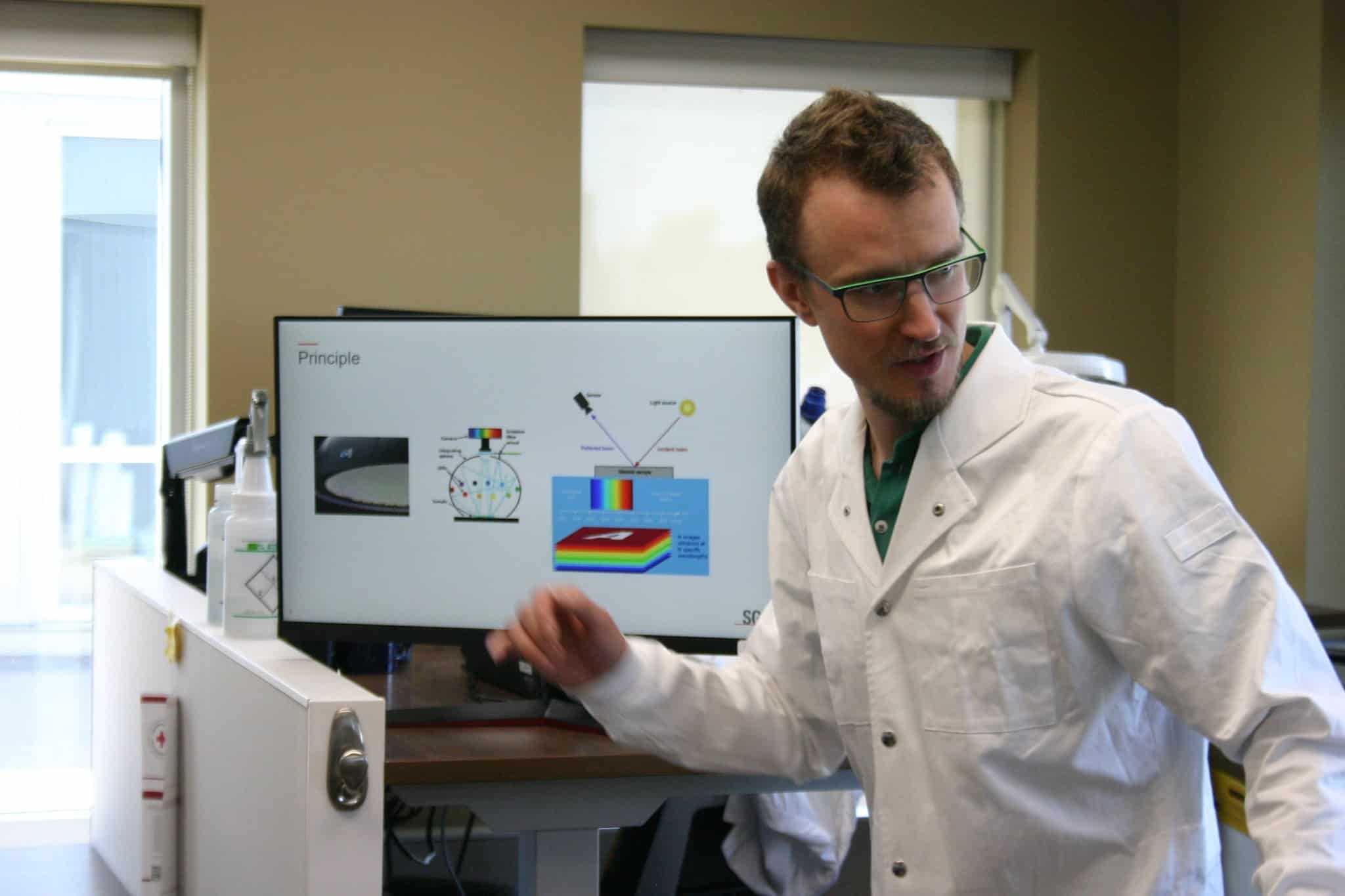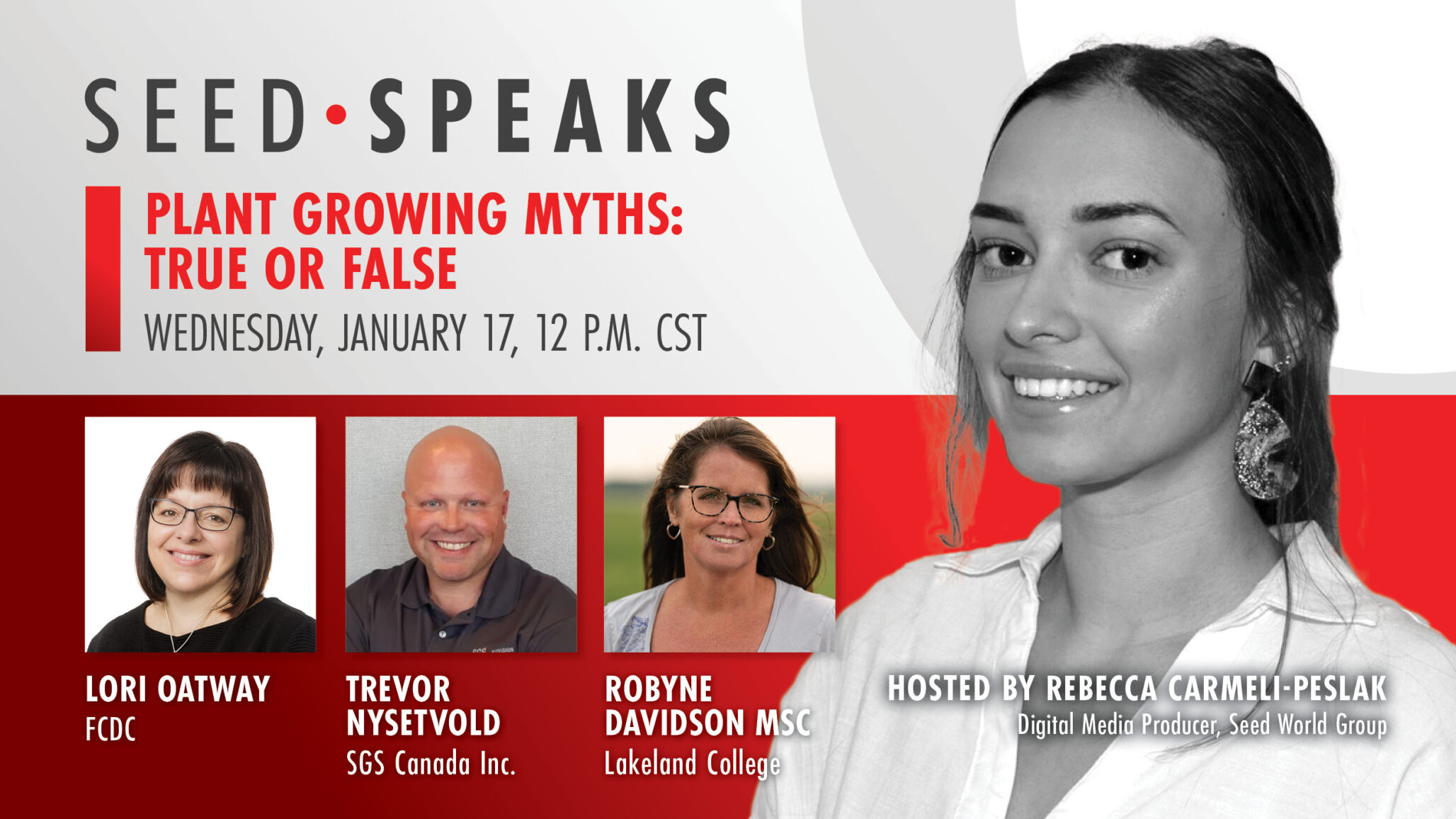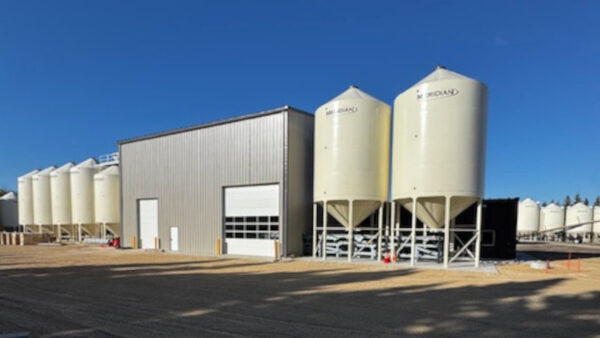In our new Eye on Business podcast episode, Trevor Nysetvold and Holly Gelech of Alberta’s SGS BioVision offer insights on what the new year will bring in terms of seed health and how your business could benefit from testing seed in-storage. Hosted by Marc Zienkiewicz
Seed analysts be thought of as diagnostic doctors, diagnosing the health of your most precious input. As a new year begins, the “physicians” at SGS BioVision are advising you bring your seed in for more than just its routine checkups.
Best practises have been to test seed right off the combine at harvest, and then again in spring before seeding, says Trevor Nysetvold, director of Seed and Crop for SGS BioVision in Sherwood Park, Alta.
But Nysetvold says that in the new year, interim testing is advised in order to monitor the quality of the product in storage.
“After what much of that seed went through late last year, your seed health could deteriorate just sitting in the bin,” he says.
Seed tests are a snapshot in time. In the course of his work, Nysetvold and his staff at SGS BioVision have given thousands of clients peace-of-mind in regard to the health of their seed.
But seed testing is never as easy as just taking a sample and putting it through a testing procedure. Analysts — like doctors — consider other factors, like what the harvest season was like, storage conditions, and what could be in store this coming seeding season and whether or not those seeds tested are healthy enough to handle what Mother Nature may deliver.
“There can be predictive value in getting that seed tested during storage. It’s important that clients work with a reputable lab because in a lot of cases there may be some interpretation required to fully understand what those test results mean and what they don’t mean.”
That’s where SGS BioVision’s unique expertise comes in. As an International Seed Testing Association-accredited lab, SGS BioVision is now capable of issuing Canadian seed organizations ISTA Orange International Certificates (OIC) or Blue International Certificates (BIC) based on the requirements of the importing country.
But the ISTA accreditation, combined with SGS’s global presence, means more than just delivering quality seed testing results to seed growers.
SGS BioVision is part of the Seed and Crop group within SGS globally, Nysetvold says. When BioVision was acquired by SGS in 2017, it created the Seed and Crop division within SGS Canada.
Now, Nysetvold and his staff in Sherwood Park collaborate with other SGS colleagues in 35 different countries.
SGS operates seven GLP labs, conducts contract field trials in 28 countries, runs 17 soil laboratories working on precision farming, and has a network of 17 seed testing labs the world over.
“Our history has always been in testing for seed multiplication, bringing the seed from breeder status to the certified seed level for the pedigreed seed industry. Now we have greater interactions within the seed industry in Canada, thanks to a number of SGS labs that support the seed industry beyond just seed multiplication,” says Holly Gelech, business development manager Seed and Crop for SGS BioVision.
One of those labs includes the Grains Analytical Research Lab in Guelph, Ont., which has partnered with the seed industry in providing end use testing for wheat varieties.
SGS BioVision is increasingly becoming involved in plant- and soil-based testing.
“We support the seed industry through soil nutrient testing as well as pathology, which includes full fungal scans of the soil to specific pathogens like clubroot and Aphanomyces,” Gelech adds.
“We look at the big picture — that’s one of the benefits of having a global presence.”
For more info visit biovision.ca.
Podcast: Play in new window | Download











